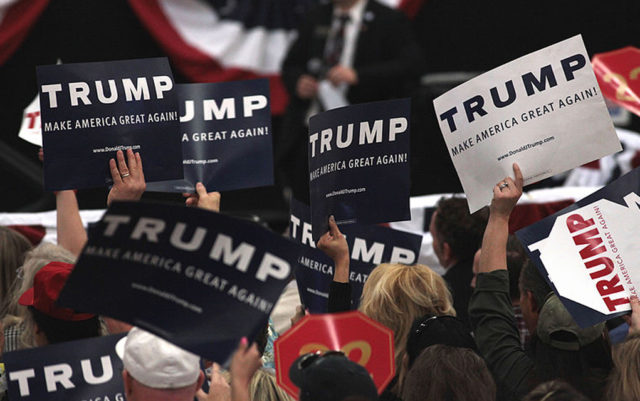
Many on the Left approach the coming year with trepidation but also some hope. The Democratic victories in November were encouraging and the election of a Democratic senator in Alabama this month — first time in 25 years — was a wonderful surprise.
Longtime grassroots organizer L.A. Kauffmann writes that the resistance to Trump is “a truly unprecedented grassroots response, different in both scale and character from anything we’ve seen before.”
Established progressive groups have experienced huge increases in membership and have provided guidance and resources. However, Kauffmann notes that the resistance is unique because it has sparked “the creation of an astounding number of new grassroots groups, at least six times the number the Tea Party could boast at its height. Locally focused, self-organized, and overwhelmingly led by women, these groups show every sign of digging in for the long haul.”
This is great but different from 2016. The movements that were growing and winning victories then — low-wage workers, pipeline blockades, climate justice, immigrant-rights, Black Lives Matter — are all on the defensive today. Now we are fighting Trump and the Republicans as they start to turn the clock back on pretty much everything.
We can move forward again if the Democrats end the GOP control of all three branches of the federal government as well as many state governments. However, after the bitter conflict between Clinton and Sanders in 2016, some Sanders supporters want to abandon the Democratic Party and start a third party. But we have a rather rigid two-party, winner-take-all electoral system. In a parliamentary system, a small third party can get a small percentage of the national vote and win some seats and steadily build strength in the legislature. You can’t do that in America. Both the Democratic and Republican parties are coalitions of diverse social forces (which might be separate parties in a parliamentary system). Most people and groups in progressive movements (labor, racial minorities, environmentalists, feminists, LGBT folks) use the Democratic Party as the electoral vehicle to advance their agendas.
After the 2016 convention, the Democratic Party created a Unity Reform Commission. A few weeks ago, the commission voted for a number of reforms which, if they are implemented, will democratize fundamental structures and processes within the party that affect how candidates for president are nominated. There would be new rules allowing same-day voter registration and same-day change of party affiliation in caucuses. Most significantly, the number of superdelegates would be cut by 60 percent. The superdelegates, unbound by voter decisions in primaries and caucuses, are party leaders who can support whomever they wish for president at the Democratic National Convention.
The Reverend Jesse Jackson has argued in his national column that the recent elections in Virginia and Alabama show that the South can lead America to a “new politics” if the millions of unregistered African Americans and Latinos in the region are inspired to vote.
In Alabama, African Americans —particularly women — voted in record large numbers for Doug Jones, the Democratic candidate for the Senate. Yes, it was a close race and his opponent, Roy Moore, was an alleged child molester and a Constitution-defying theocrat who praised slavery and demonized gays and immigrants.
But Jones was quite liberal. He supported abortion rights, said “health care is a right,” favored expanded background checks on gun purchases, supported same-sex marriage and criticized the Trump administration for withdrawing guidelines for schools on the treatment of transgender students and for banning transgender people from serving in the military.
The labor movement considered his election a victory for working people. Few people outside of the South realize that the region has amazingly become a low-wage alternative to China for multinational corporations. Auto factories have proliferated throughout the region and Republican politicians have fiercely fought against union organizers.
On the campaign trail, Jones boasted about growing up in a union family as the grandson of unionized steelworkers who were both employed by U.S. Steel in Birmingham. He had a summer job as a steelworker in order to pay his way through college. After he graduated from law school, Jones worked as a lawyer at the firm of Whatley Drake, where he represented unions.
Mike Elk reported in The Guardian, “Jones has already told labor leaders that he is going to hire a full-time labor liaison to coordinate his efforts on behalf of Alabama’s labor movement. Jones’s office could play a tremendous role in engaging political and community leaders to get behind efforts to organize the state’s growing auto industry.”
This is a pivotal historical moment. Trumpism is a clear and present danger to democracy. This regime is steeped in incessant lies, breath-taking corruption, white supremacy, misogyny and homophobia. We can end this nightmare if we build a multi-racial coalition of working people based in a revitalized labor movement.
This opinion column does not necessarily reflect the views of Boulder Weekly.














